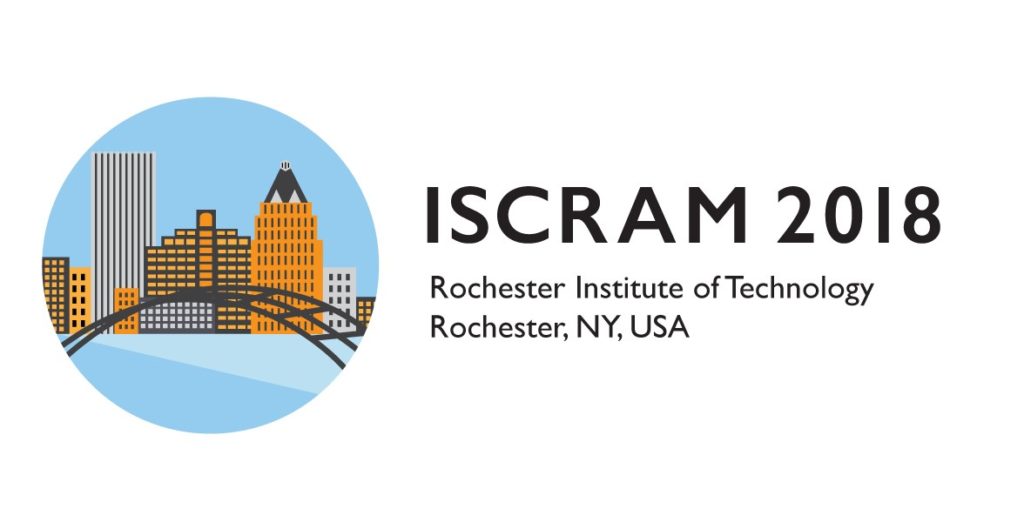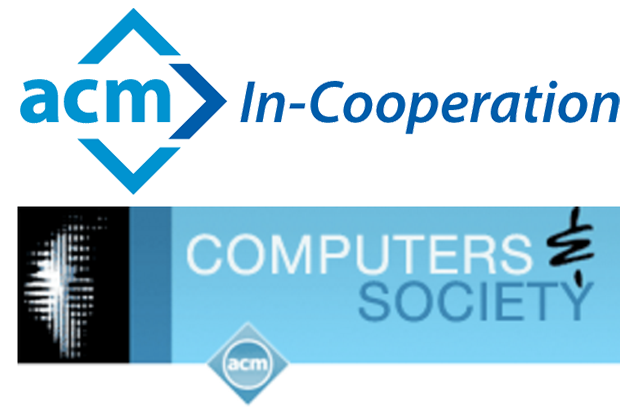

15th International Conference on INFORMATION SYSTEMS FOR CRISIS RESPONSE AND MANAGEMENT
Rochester New York, May 21nd – 23th, 2018
We would like to invite researchers to submit to our track (usually the largest track) at ISCRAM.
Deadline December 3rd, 2017 (https://iscram2018.rit.edu/submissions)
Social Media in Crises and Conflicts
The aim of this track is to showcase current research on how the use of Social Media can help in crisis management and response. We invite papers that provide rich description and/or evaluation of the design and/or actual use of Social Media for collaboration and/or widespread participation in any phase of crisis management, from initial planning and preparedness, through detection, response, and recovery phases.
Possible topics of interest for this track include the following:
- Studies of the use of social media in crises and conflicts, either for information sharing that can provide useful information for managers and citizens, as a pull technology, or for dissemination of information to the public as a push technology. This includes identification of barriers to effective use of social media by emergency response agencies, and the use of social media to “visualize” or make sense of an evolving crisis.
- Innovations in design or use of social media that solve potential problems such as issues of information overload, assessment of information trustworthiness, or ethical issues such as privacy.
- Identification and extraction of situational awareness and actionable information from social media and techniques for mining and near-real-time processing of social media data to enable early decision-making.
- Studies of crowdsourcing and other new practices such as the use of “digital volunteers” that engage the public and connect communities.
- Case studies and best practices on the use of social media for crisis response
We are currently exploring options where papers submitted to this track can potentially be published in a special issue to a reputable journal.
Track Chairs
- Prof. Starr Roxanne Hiltz, New Jersey Institute of Technology
- Prof. Amanda Lee Hughes, Utah State University
- Dr. Imran Muhammad, Quatar Computing Research Institute
- Prof. Christian Reuter, Technische Universität Darmstadt
